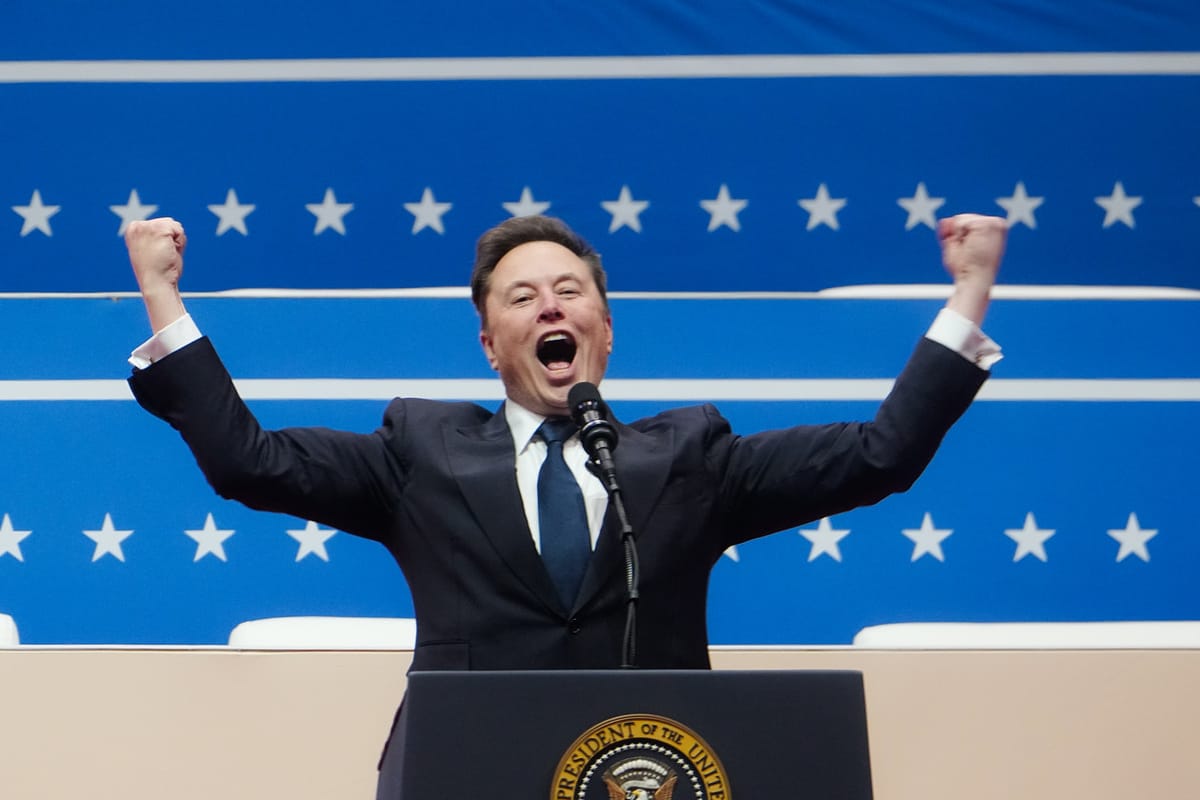Why Is Elon Musk Obsessed with British Politics?
''In coining the nickname ‘two-tier Keir,’ a term used extensively by right-wing political actors, Musk has exerted significant influence on domestic politics in the UK by siding with right-wing activists online through his control of the social media platform, or ‘public square,’ X'

by Red Beswick, BA International Relations and Arabic 03/02/2025
‘Britain is going full Stalin;’ ‘Civil war is inevitable.’ These two separate statements have both emerged from the world’s richest man, Elon Musk. So where has this recent interest in British politics come from, and why now, and not last year during the run-up to the general election?
Despite his self-proclaimed ‘moderate political views,’ the billionaire emerald mine heir appears to be staking an increasingly right-wing position in British politics. Following the far-right riots in the wake of the horrific killing of three girls in Southport last summer, Musk accused PM Keir Starmer of a two-tier approach to policing, a phrase often used to describe an alleged difference in policing attitudes. In this context, the allegation refers to a supposedly harsher treatment of those partaking in anti-immigration demonstrations, which often developed into violent protests specifically targeting mosques, in comparison to an allegedly more lenient handling of left-leaning protesters including matters such as climate change and the oppression of Palestine. In coining the nickname ‘two-tier Keir,’ a term used extensively by right-wing political actors, Musk has exerted significant influence on domestic politics in the UK by siding with right-wing activists online through his control of the social media platform, or ‘public square,’ X.
Musk represents a movement which has recently gained momentum: the hyper-capitalistic ‘hustle culture.’ He is admired by would-be entrepreneurs worldwide for his status as the wealthiest man on the planet. Musk propagates an image of a self-made man, which is a central factor to his idolised status. His business empire includes the giant tech companies of Tesla, Inc. and Space X - the latter of which has received approximately $20 billion in subsidies from the US government - which appeals to the laissez-faire advocates among the right-wing of British politics. Musk’s approach to politics is somewhat confusing: as the CEO of a company which produces solely electric vehicles, such as the infamously flammable Cybertruck, one would assume that he would be interested in the fight to mitigate the effects of the climate crisis. While Musk has personally contributed $100 million to the XPRIZE carbon removal competition which seeks to reward carbon capture technology innovators, he has also met with key Reform UK party leaders, and it was revealed that Musk was contemplating similar donations to the party of up to $100 million. This appears to be contradictory, given the fact that Reform UK pledged in their manifesto to ‘unlock Britain’s vast oil and gas reserves to […] unleash real economic growth.’ Such a position seems to conflict with Musk’s statement that ‘the faster we transition to a sustainable energy economy, the better.’ So, this begs the question: what does Elon Musk want with British politics, given that he supports political parties whose policies directly conflict with his stated views on the environment?
Musk’s obsession with UK politics, especially Reform UK, may instead come from his libertarian views, and his advocacy for limited government intervention in the economy. These views are reflected by his upcoming appointment within the Trump-Vance administration as the co-leader of the Department of Government Efficiency (DOGE - a subtle nod to his other obsession, outdated memes). This advisory body seeks to streamline government spending and reduce government regulation of markets and business practices. These goals coincide directly with Reform UK’s policies to reduce bureaucratic hurdles for business, while reducing public expenditures. These transatlantic similarities in Musk’s political disposition may partially explain his preoccupation with Reform UK.
As for his obsession with British politics as a whole, his other interferences in domestic politics around the world may provide a clue. In January 2025, Musk live-streamed a conversation on X with Alice Weidel, leader of the German far-right AfD party. During said conversation, Musk stated that it was the AfD which could ‘save Germany.’ The phrase could hint at Musk’s affiliation with far-right political views, given its similarity to the phrase ‘Save Europe’ often recited by borderline fascists who like to hide in the crevices of Musk’s algorithm on X. This brings us to the role Musk’s ownership of the platform has played in sculpting political discourse within Britain as well as the rest of the world, given his self-proclaimed goal of creating a ‘global town square’ for free expression and exchange of ideas. Free expression manipulated by a computer algorithm seems a bit of a dystopian town square when you think about it. This begs the question: what will his algorithm and wealth alike lead to, now that his focus has recalibrated across the Atlantic? And what does the billionaire have in store for the politics of the United Kingdom? The answers may become clearer following Trump’s inauguration as the 47th President of the United States.



